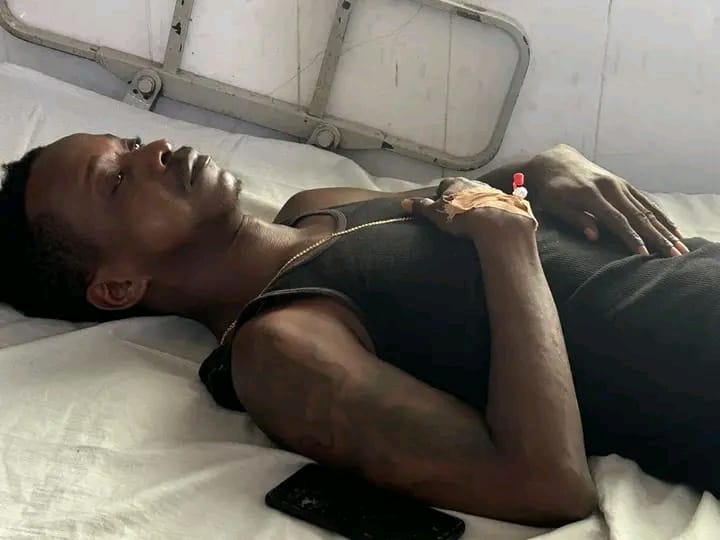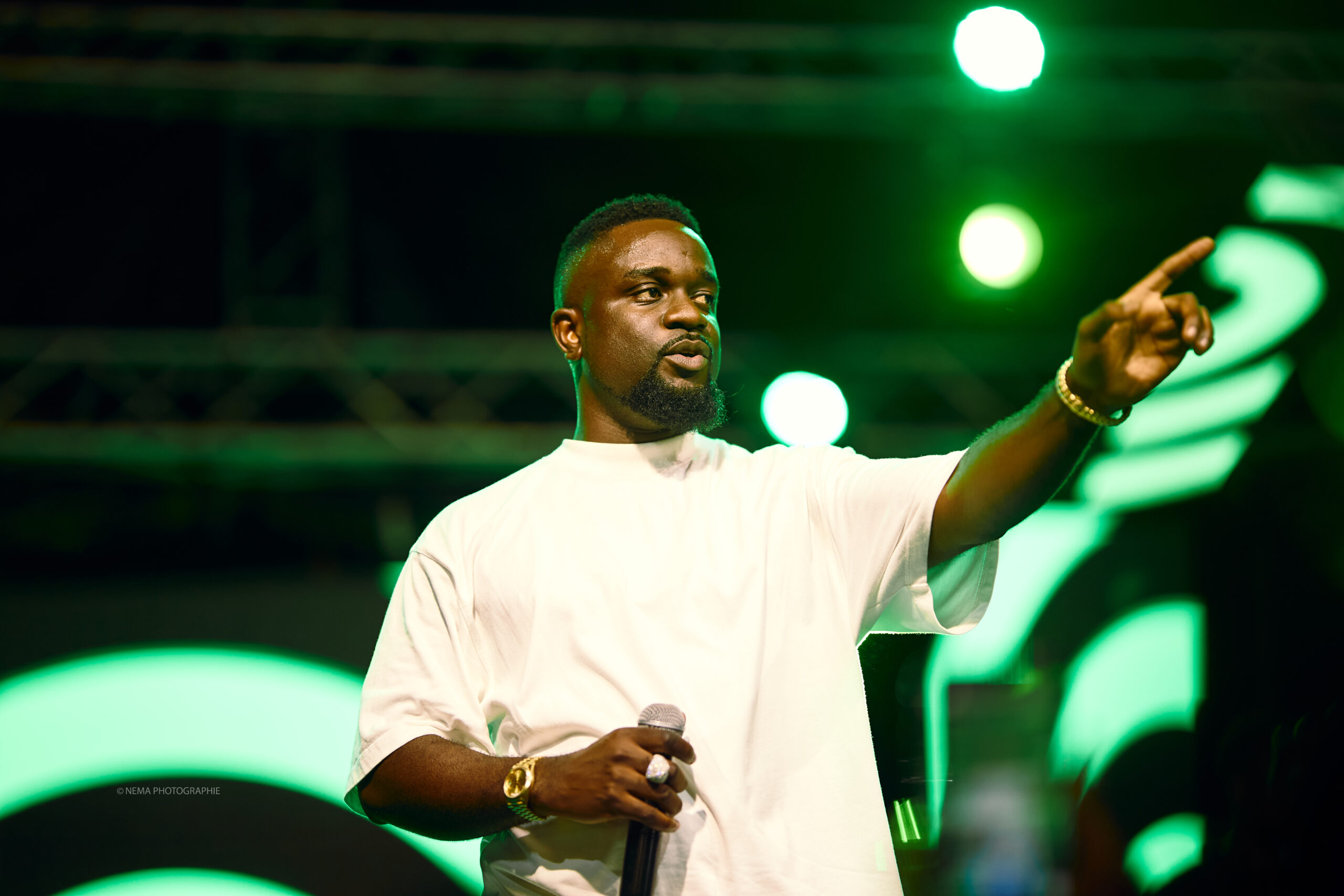Gossip
Cardinal Peter Turkson will not become the first African Pope!!!
 Ghanaian cardinal Peter Turkson is frequently mentioned amid all the speculation about who might succeed Pope Benedict XVI. If picked, some would see him as the first African and the first black pontiff in the nearly 2,000-year history of the papacy. But according to a feature on USAtoday.com titled ‘ ‘The early papacy was not white, it was much more diverse,’ says a historian of African-American Catholicism’, even if elected, the Ghanaian wouldn’t become the first black/African Pope. Read more below: But in all that time has there really never been a black pope? Or an African pope? It depends on what you mean by “black” and by “African.” It can seem to the contemporary mind that the papacy is a purely European institution, and predominantly an Italian one to boot. In fact, the early popes reflected the diversity of the early church — a community that was born in the Middle East and spread around the Mediterranean basin, from Greece to Rome and the Iberian peninsula and with great success to North Africa. “North Africa was the Bible Belt of early Christianity,” said Christopher Bellitto, a church historian at Kean University in New Jersey. “Carthage was the buckle,” he added, referring to the city located in modern-day Tunisia. So it should be no surprise that three early popes hailed from that region: the 14th pope, Victor I (circa 189-198 A.D.); the 32nd pope, Miltiades (311-314 A.D.); and the 49th pope, Gelasius I (492-496 A.D.). According to the sixth-century Liber Pontificalis, the earliest known record of the popes, Victor was from North Africa, while Miltiades and Gelasius likely were born in Rome to families of African origin. Interestingly, Victor was the first pope to speak Latin because Christians in Rome were still using Greek in the liturgy. As one historian has written, it was “remarkable … that Latin should have won recognition as the language of African Christianity from the outset, while the Roman church was still using Greek.” But were these three African popes “black” in the sense that we would define race today? And did it matter back then? The Rev. Cyprian Davis, a Benedictine priest who is a leading historian of African-American Catholicism, notes that by Pope Victor’s time, the Roman aristocracy had large holdings in North Africa. It’s not clear, however, whether these so-called African popes came from those families or from the rural, somewhat darker-skinned indigenous population known as the Berbers. Davis said the best bet for what we would consider a “black” pope is probably Victor, but he added that the church and the empire of those early centuries were a mosaic of colors and ethnicities. “It’s important for us to look and say that yes, the early papacy was not white. No, it was much more diverse than you might think,” Davis said. Moreover, race as we think of it today did not have quite the same meaning back then. “When you say ‘black pope,’ you have to think Roman Empire, not African-American,” as Bellitto put it. Some popes in those days — along with many renowned saints and martyrs and bishops like St. Augustine of Hippo — probably looked more like modern Arabs than any pontiff of the last millennium. Still, if the cardinals elect Turkson or another cardinal from sub-Saharan Africa, any of them would represent a historic first for the church, geographically and racially. Africa is one of the fastest growing centers of global Catholicism. “I don’t want to say that we blacks have arrived again, and what was once, now we’re back!” said Davis with a soft laugh. But, he continued, “I’m sure black Catholics like myself would think it’s a wonderful thing.”]]>
Ghanaian cardinal Peter Turkson is frequently mentioned amid all the speculation about who might succeed Pope Benedict XVI. If picked, some would see him as the first African and the first black pontiff in the nearly 2,000-year history of the papacy. But according to a feature on USAtoday.com titled ‘ ‘The early papacy was not white, it was much more diverse,’ says a historian of African-American Catholicism’, even if elected, the Ghanaian wouldn’t become the first black/African Pope. Read more below: But in all that time has there really never been a black pope? Or an African pope? It depends on what you mean by “black” and by “African.” It can seem to the contemporary mind that the papacy is a purely European institution, and predominantly an Italian one to boot. In fact, the early popes reflected the diversity of the early church — a community that was born in the Middle East and spread around the Mediterranean basin, from Greece to Rome and the Iberian peninsula and with great success to North Africa. “North Africa was the Bible Belt of early Christianity,” said Christopher Bellitto, a church historian at Kean University in New Jersey. “Carthage was the buckle,” he added, referring to the city located in modern-day Tunisia. So it should be no surprise that three early popes hailed from that region: the 14th pope, Victor I (circa 189-198 A.D.); the 32nd pope, Miltiades (311-314 A.D.); and the 49th pope, Gelasius I (492-496 A.D.). According to the sixth-century Liber Pontificalis, the earliest known record of the popes, Victor was from North Africa, while Miltiades and Gelasius likely were born in Rome to families of African origin. Interestingly, Victor was the first pope to speak Latin because Christians in Rome were still using Greek in the liturgy. As one historian has written, it was “remarkable … that Latin should have won recognition as the language of African Christianity from the outset, while the Roman church was still using Greek.” But were these three African popes “black” in the sense that we would define race today? And did it matter back then? The Rev. Cyprian Davis, a Benedictine priest who is a leading historian of African-American Catholicism, notes that by Pope Victor’s time, the Roman aristocracy had large holdings in North Africa. It’s not clear, however, whether these so-called African popes came from those families or from the rural, somewhat darker-skinned indigenous population known as the Berbers. Davis said the best bet for what we would consider a “black” pope is probably Victor, but he added that the church and the empire of those early centuries were a mosaic of colors and ethnicities. “It’s important for us to look and say that yes, the early papacy was not white. No, it was much more diverse than you might think,” Davis said. Moreover, race as we think of it today did not have quite the same meaning back then. “When you say ‘black pope,’ you have to think Roman Empire, not African-American,” as Bellitto put it. Some popes in those days — along with many renowned saints and martyrs and bishops like St. Augustine of Hippo — probably looked more like modern Arabs than any pontiff of the last millennium. Still, if the cardinals elect Turkson or another cardinal from sub-Saharan Africa, any of them would represent a historic first for the church, geographically and racially. Africa is one of the fastest growing centers of global Catholicism. “I don’t want to say that we blacks have arrived again, and what was once, now we’re back!” said Davis with a soft laugh. But, he continued, “I’m sure black Catholics like myself would think it’s a wonderful thing.”]]>
Gossip
Highlife Musicians KK Fosu, Bless involved in a car crash at Apam

News reaching Ameyaw Debrah Media is that Ghanaian Highlife musician, KK Fosu was involved in a near-fatal accident on the Accra-Apam on the early hours of Saturday, May 25, 2024.
According to information gathered, KK Fosu was together with his fellow musician, Bless when their car collided with a Mercerdes Benz at Apam junction while on their way to an event at Breman Essikuma.

The ‘Chocho mu cho’ hitmaker, who sustained some serious injuries is currently receiving treatment at a near by hospital.
KK Fosu sustained some injuries as well and is also responding to treatment.
https://www.facebook.com/100050322556844/posts/988777996142943/?mibextid=FsRMYhg12H5JuPBo
Gossip
Social Trends: Sarkodie’s lyrics on ‘Hate’ Sparks Online Debate

Sarkodie’s indirect diss on Jay Bahd’s song ‘Hate’ has sparked a significant online debate. (more…)
Gossip
Police arrest Nigerian music star, Portable over G-Wagon debt ..watch how he jumped over a gate to escape previous arrest

The Lagos State Police Command, on Tuesday, arrested popular musician, Habeeb Okikiola, popularly known as Portable, for refusing to pay the debt he incurred when he purchased G-Wagon from a car dealer in the state.
Portable jumps gate to escape as police come to arrest him over alleged unpaid debt for his G-Wagon…. Watch till the end cos he actually jumped the fence for real 😩😭😂 pic.twitter.com/PORc1X3cmK
— Oyindamola🙄 (@dammiedammie35) May 14, 2024
PUNCH Online gathered that Portable, during the purchase of the vehicle worth N27m, paid only N13m and had refused to pay the N14m balance.
It was learnt that whenever the car dealer contacted him to pay the balance, he usually claimed that the vehicle was bad
When efforts to get Portable to pay the balance proved abortive, our correspondent gathered that the car dealer reported the matter to the police and policemen detailed to investigate the case arrested Portable.
When contacted, the state Police Public Relations Officer, Benjamin Hundeyin, confirmed that Portable had been arrested.
He said, “Yes, Portable has been arrested. He bought G-Wagon for N27m, paid N13m and refused to pay the rest, claiming the vehicle was bad. We arrested him today.”
Gossip
Ghanaian footballer, Yaw Yeboah proposes to girlfriend, Gifty Boakye

Ghanaian fashion model, Gifty Boakye has revealed on her birthday that her boyfriend and Ghanaian midfielder, Yaw Yeboah has officially proposed marriage to her.
Gifty shared photos of the happy moment when the Major League Soccer star, who plays for the Columbus Crew, popped the question ‘Will you marry me question?” in front of family and friends.
View this post on Instagram
Yaw Yeboah won two trophies with Major League Soccer side Columbus Crew in 2023. The former Ghana U23 captain scored the winner as the Gold and Blacks defeated Los Angeles FC to win their third MLS title. Yeboah also starred in the Eastern Conference final as Columbus Crew came from two goals down to beat city rivals FC Cincinnati at the TQL Park. Yeboah, who made 37 appearances scoring four goals and providing five assists in the 2023 campaign, was rewarded with an invite to the Black Stars ahead of the 2023 Africa Cup of Nations.
Gifty Boakye was born in the USA to parents who had immigrated from Ghana. At the age of 16 her dark complexion created drive and passion in her to begin to model and further to inspire young girls to love the skin they’re in. Today I enjoy sharing my story .life as a model, Entrepreneur, philanthropist, & public speaker now living in Accra Ghana.
After receiving my degree in communications arts from St Johns University, I started my first company NVTIVE in 2017 an online Boutique that pays homage to international cultured in apparel & art. In 2018 I founded Sister S.L.A.Y a nonprofit that empowers young girls ages 11-18 through educational workshops and self-confidence rebuilding.
Fun facts about Gifty, she can rap almost any Jay Z record word for word. She loves spending time with family& friends. Her favorite food is Waakye and in 2017 also Gifty reigned as the face of festival AFROCHELLA. Her guilty pleasure is gummy bears. She was also in a relationship with Ghanaian footballer Thomas Partey.
Gossip
Rema Sparks Big 3 Debate in Nigerian Music Scene

The Nigerian music scene is buzzing with discussions about the ‘Big 3’ artists, with Olamide, Davido, and Wizkid being the most frequently mentioned. (more…)
Gossip
“I produced most of the biggest hit songs in Ghana last year” – Beatz Vampire claims the crown ahead of TGMA 2024

Showbiz and showboating go hand in hand and Beatz Vampire is sticking to the script. As one of the industry’s most sought-after producers, he confidently declares 2023 his own and believes none of his peers even come close heading into the Telecel Ghana Music Awards 2024.
Despite the prominent awards show just a month away–June 1, Beatz Vampire is already anticipating a clean sweep under its rebranded glory. His gaze is set on one of the night’s most coveted achievements: the “Producer of the Year” award. And with four hits credited to him under three artists in the previous year alone, it is easy to see why he is confidence levels are stratospheric.
Last year, the young producer was all over the place. His work on JZyNO and Lasmid’s ‘Butta My Bread’ was a mega success, bringing over 160M streams across platforms. The song’s popularity on TikTok also got under the skin of artists like Nigeria’s Ruger, who tried to downplay its quality and appeal. Beatz Vampire chased this down with equally catchy tracks like ‘Goodsin,’ ‘Likor’ and ‘I Lied,’ which garnered similar acclaim.
Indeed, Beatz Vampire has a good chance of winning the award. Since the nominations list dropped, his name has been on the lips of fans who showed their support. The producer chimed in on his fans’ sentiments, saying: “I feel honored even though this was expected. I produced most of the biggest hit songs in Ghana last year, from JZyNO and Lasmid’s ‘Butta My Bread’ to Olivetheboy’s ‘Goodsin,’ Kidi’s ‘Likor’ and ‘I Lied,’ so it’s only right I am handed the award on that night. Big shouts to the rest of the nominees though.”
Of course, Beatz Vampire is no stranger to the hype around prestigious awards. In 2022, he was nominated “Producer of the Year” at the Ghana Music Awards USA and Ghana Music Awards France. His contributions over the years, like Jahmiel’s ‘Beautiful,’ P-Square’s ‘Jaiye,’ Shatta Wale’s ‘Hajia Bintu’ and ‘1 Don,’ Mr Drew’s ‘Mood’ and ‘S3k3,’ Lasmid’s ‘Atele’ and ‘Sika,’ among others, were super hits of their time. But this year in review is a special one. He believes after so many years of missing out, the award is coming home.
As the Telecel Ghana Music Awards (formerly the Vodafone Ghana Music Awards) draws close, Beatz Vampire stands on the cusp of glory.
-

 Gossip11 hours ago
Gossip11 hours agoHighlife Musicians KK Fosu, Bless involved in a car crash at Apam
-

 Buzz1 week ago
Buzz1 week ago‘We Sleep in Separate Rooms’ – Medikal Reveals He’s Not Been Intimate with Fella Makafui for Nearly a Year
-

 People & Lifestyle3 days ago
People & Lifestyle3 days agoAkwasi Koranteng Causes Arrest of Fella Makafui For Selling Unregistered Drugs, False Advertising and more
-

 Gossip1 week ago
Gossip1 week agoSocial Trends: Sarkodie’s lyrics on ‘Hate’ Sparks Online Debate
- Buzz2 days ago
Pray for me; my heart is heavy – James Gardiner tells fans as he battles depression
-

 People & Lifestyle6 days ago
People & Lifestyle6 days agoFidelity Bank refutes allegations by TikTok star, Frema Shows
-

 Buzz2 days ago
Buzz2 days agoI will register my house, kids, and kidney in your name – Strongman tells baby mama
-

 Buzz3 days ago
Buzz3 days agoBanky W undergoes fourth cancer surgery, shares inspiring testimony
-

 Buzz3 days ago
Buzz3 days agoPhones have become our best friends – Stonebwoy
-

 Listen2 days ago
Listen2 days agoKING PROMISE FEATURING SARKODIE & OLIVETHEBOY – FAVORITE STORY
-

 Buzz1 week ago
Buzz1 week agoKuami Eugene’s father will finally be laid to rest this weekend
-

 Buzz4 days ago
Buzz4 days agoJnr Pope betrayed me – Yul Edochie opens up on ‘beef’ with late actor

